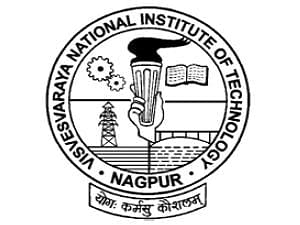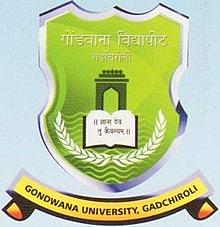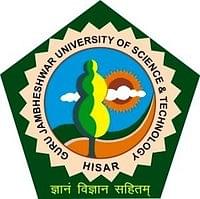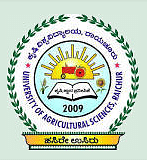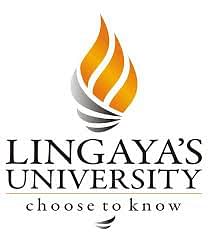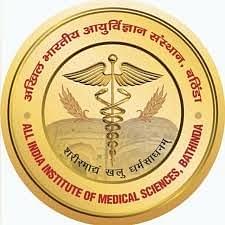A Microbiology PhD program is one of the most coveted doctoral degrees worldwide. It offers advanced training and research in various aspects of microbiology, preparing students for successful careers in academia, industry, and government research institutions. As with other doctoral programs, admission into a microbiology PhD program is highly competitive, and candidates must meet specific requirements to ensure consideration.
PhD Eligibility for Microbiology PhD Programs
To be considered for admission into a Microbiology PhD program, candidates must meet specific eligibility criteria, including academic qualifications, minimum GPA, and GRE scores.
Required academic qualifications
Candidates must hold a bachelor's or master’s degree in microbiology, biochemistry, biology, or any related field. Undergraduates with relevant majors who show a strong interest in pursuing a microbiology PhD may also be considered. Most Microbiology PhD programs also require candidates to have completed coursework in microbiology, biochemistry, cell biology, molecular biology, genetics, and chemistry.
For Admission Inquiry Call/WhatsApp +91 9917698000
Minimum GPA and GRE scores
Microbiology PhD programs typically require a minimum GPA of 3.0 or above, but some prefer candidates to have a higher GPA that ranges from 3.3 to 3.5. In addition, applicants must submit GRE scores that reflect their academic abilities in Verbal, Quantitative, and Analytical Writing sections. Most programs require a minimum GRE score of 300, and others may require scores in specific sections that range between 150- 160 points.
PhD Fees and Funding Options for Microbiology PhD Programs
Before considering admission to a microbiology PhD program, it’s important to understand the costs involved and your funding options. These include program fees and scholarship/grant opportunities provided by universities and external institutions.
Phd Average program costs
The average cost of a microbiology PhD program ranges from $60,000 to $120,000. However, costs may vary depending on the institution and program type. Part-time programs are generally cheaper than full-time programs, which may include additional costs such as housing, health insurance, and research expenses.
Phd Scholarship and grant opportunities
To help offset the costs of a microbiology PhD program, universities and external institutions offer a range of scholarship and grant opportunities. These opportunities are usually merit-based and awarded to candidates who have demonstrated exceptional academic performance.
Some of the most common scholarships and grants available for microbiology PhD programs include the National Science Foundation Graduate Research Fellowship, The American Society for Microbiology (ASM) Robert D. Watkins Fellowship, The American Society for Microbiology (ASM) Undergraduate Research Fellowship, The PhRMA Foundation Pre-Doctoral Fellowships in Pharmacology/Toxicology, and The Department of Energy Computational Science Graduate Fellowship.
PhD Course Details for Microbiology PhD Programs
The course structure and details of a microbiology PhD program vary depending on the institution and program type. However, most programs follow a similar curriculum that includes advanced coursework, laboratory rotations, research opportunities, and a thesis/dissertation requirement.
PhD Program Duration and course structure
Microbiology Ph.D. programs typically take 4-6 years to complete. The curriculum usually includes core courses in areas such as biochemistry of macromolecules, microbial genetics, molecular genetics, and microbial physiology. Candidates also select from specialized courses in fields such as bacteriology, virology, microbial ecology, and microbial pathogenesis.
In addition to coursework, students in a Microbiology PhD program also participate in laboratory rotations, where they partner with different professors to work on research projects. These rotations allow students to develop research skills and experience working in different research areas within microbiology.
PhD Research opportunities and thesis requirements
Research forms a significant part of Microbiology PhD programs. Candidates are expected to conduct independent laboratory research that culminates in a dissertation or thesis. This may involve exploring topics in areas such as bacterial genomics, host-microbe interaction, microbial ecology, and microbial infection.
The dissertation or thesis is designed to demonstrate the student's ability to develop and carry out an independent research project leading to significant new findings, conclusions, or discoveries.
Achieving admission into a Microbiology PhD program requires candidates to meet specific eligibility criteria, including having a Bachelor's or Master's degree in microbiology, biochemistry, biology, or related fields, and scoring high marks in their GRE tests. Additionally, funding opportunities must be considered to help offset the costs of the program. Most Microbiology PhD programs have a comprehensive and structured curriculum that includes advanced coursework, laboratory rotations, research, and a thesis or dissertation requirement. These programs are competitive, and applicants must work hard to distinguish themselves among the pool of candidates. Proper research and diligence in finding the right program that matches your interests and aspirations, and meeting the eligibility criteria, can increase your chances of success.
conclusion
In conclusion, a Microbiology PhD program is a largely competitive and grueling academic pursuit that offers advanced training and exploration openings in microbiology. To be considered for admission, campaigners must meet specific eligibility criteria, including academic qualifications, minimal GPA, and GRE scores. Funding options, similar to literacy and subventions, should also be considered to neutralize program costs. The program class generally includes advanced coursework, laboratory reels, exploration openings, and a thesis/ discussion demand. Successful completion of a Microbiology PhD program can lead to colorful career openings in academia, assiduity, and government exploration institutions. Prospective scholars should probe and estimate different programs precisely to find the stylish match for their interests and career bournes.
For Admission Inquiry Call/WhatsApp +91 9917698000






